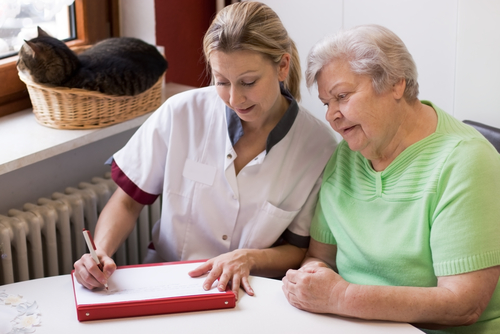

Do you have resources to deal with cancer that go beyond understanding treatment? Patients like me certainly spend a lot of time talking about treatments, and research into better treatments, which makes a lot of sense. But that’s just part of the cancer journey. Patients and caregivers also have personal struggles, often a family struggle, to cope, move through the cancer experience and to maintain hope – as well as enjoy the best of every day as it comes.
Physicians have little training to help us with that. It’s not really their job. But there are others who can help a great deal. In my experience the very best are specialized oncology social workers. You can find them at most larger cancer centers and sometimes thru private practices or support organizations. At major medical centers they often find you, at others you may have to ask. Their job is to help you get to a better place, no matter what the prognosis, and to help bring in other resources, as needed.
Brianna Garrison
Recently I met a terrific oncology social worker, Brianna Garrison, MSW, LMSW, who works with patients at MD Anderson Cancer Center in Houston. She was part of a town meeting for myeloma patients, and her advice cuts across all cancers. I urge you to watch this interview with her, Brianna Garrison: A Social Worker’s Advice. She’s a wonderful example of what an oncology social worker has to offer the newly diagnosed or anyone down the road on their cancer journey, and their family.
As she points out, and as it became clear from our discussions with myeloma experts like Drs. Robert Orlowski and Shaji Kumar, myeloma is a cancer where so much is happening in treatment and research that it should be emotionally uplifting for patients and their families, if only you have the help you need to see what’s positive. Dedicated oncology social workers like Brianna can help tremendously.
In so many cancers – certainly not all, but quite a few – people are living and living well. I am an example. For many blood-related cancers, and others that can be genetically targeted, patients who would earlier have had a shortened life or a poorer quality of life are living very well. An oncology social worker can help give you perspective. And if your diagnosis is in a condition where less progress has been made just yet even then a social worker can help you cope and get the help you need to make your days the best they can be.
Brianna Garrison helps people at MD Anderson and there are people just like her at other cancer centers and, often, available through oncology practices and support organizations. Call them or ask your doctor or nurse for names. Specialists like oncology social workers are key members of the cancer care team you should not overlook.
image: cancer/shutterstock